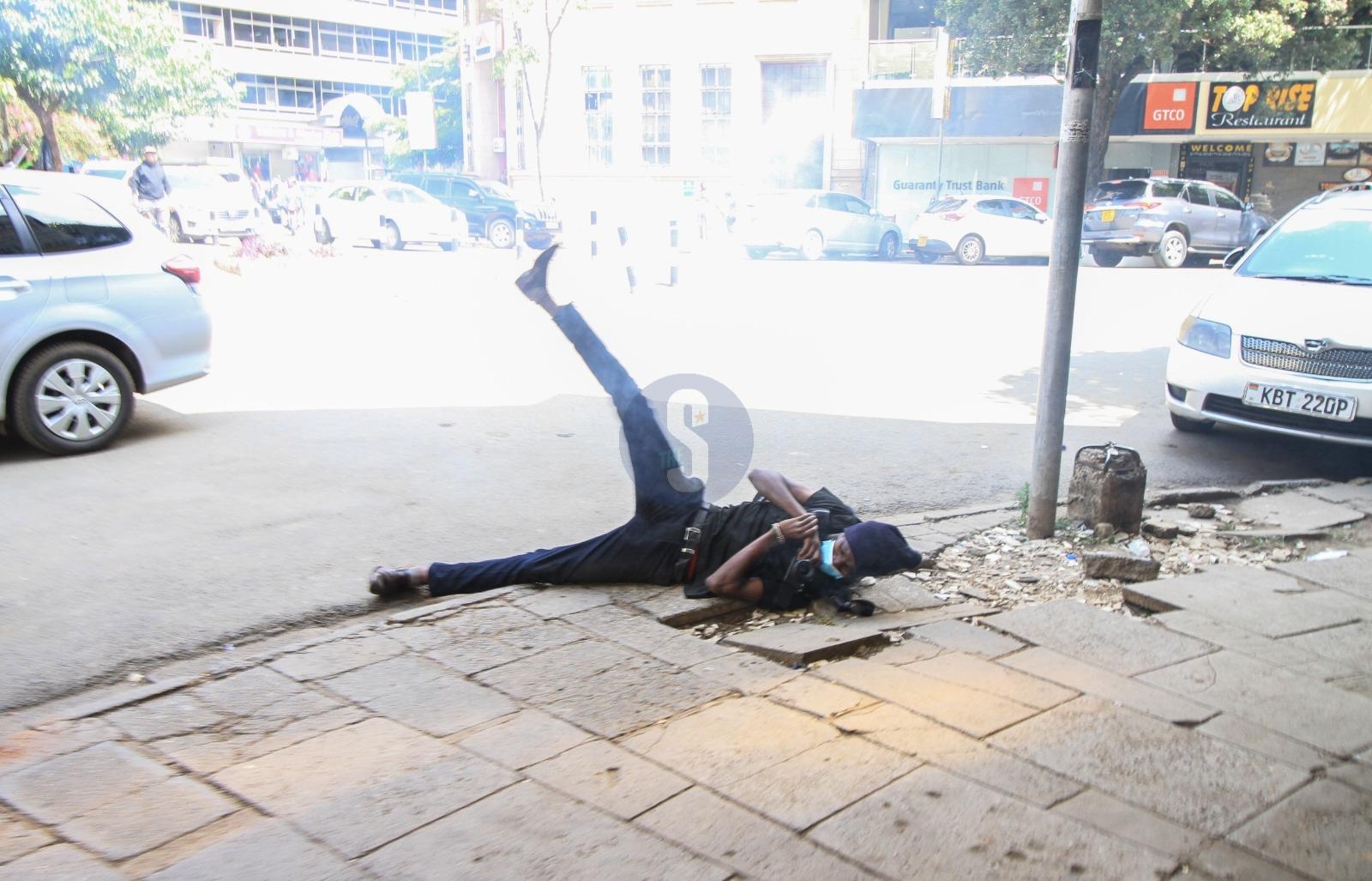
 Anti-femicide protesters during protests on Tuesday, December 10, 2024 /CYRUS OMBATI
Anti-femicide protesters during protests on Tuesday, December 10, 2024 /CYRUS OMBATIPeaceful protests, largely led by women and youth, have filled the streets, demanding accountability and immediate action from the government.
However, rather than listening to these voices advocating for justice, the National Police Service respond ed with teargas and mass arrests.
The state’s attack on dissent and the fight against femicide is unjust.
This heavy-handed, authoritarian response is not only unjustifiable but also a blatant violation of human rights and constitutional freedoms.
The government’s failure to protect its citizens, combined with the criminalisation of dissent, underscores the widening gap between the promises made by state institutions and their obligation to uphold funda mental rights.
The Constitution of Kenya 2010 guarantees the right to peaceful assembly under Article 37. However, this right has been flagrantly disrgarded by state institutions tasked with upholding it.
The brutal repression of peaceful demonstrators, who are demanding accountability for the lives lost to femicide, is yet another example of how the state oversteps its bounds.
This is not the first time we have seen state-sanctioned overreach. The disturbing pattern of police using excessive force against citizens is well-documented, yet accountability continues to remain out of reach.
Kenya is still grappling with the aftermath of the violent response to the Gen Z protests, which led to abductions, killings and families left in despair.
Over four months have passed since these atrocities, and no one has been held accountable despite the President’s public vow, in full view of the cameras, that such killings and abductions would not oc cur under his leadership.
The excessive force used in #EndFemicideKE protests across the country sends a clear message: the government does not prioritise the protection of its people but instead seeks to protect its interests.
If you look at the data from civil society, it paints a grim picture: women are murdered with impunity, while perpetrators are rarely brought to justice.
Families are left to grieve without answers, and communities are left in fear.
The government’s failure to address this crisis has forced citizens to take matters into their own hands by demanding change through peaceful demonstrations, and the security agencies should allow Kenyans to express themselves without intimidation.
It is unfortunate that this government is more focused on silencing Kenyans who ask critical questions yet fails to address pressing issues like the establishment of Kenya’s Independent Electoral and Boundaries Commission and the ongoing challenges within the healthcare system, which remains far from seamless.
It is also disappointing that politicians remain silent on the excessive use of force by police against their representatives, yet when it comes to their own political interests, such as impeachment motions and the passing of bills clearly rejected by Kenyans, they are quick to react.
This highlights where their true priorities lie.
Of importance to note is that the primary role of the government is to protect its citizens, yet its actions tell a different story. Arresting peaceful protesters while failing to arrest those responsible for heinous acts of femicide is a stark dereliction of duty. How can a government claim to champion human rights when it criminalises the exercise of those very rights?
Moreover, the National Police Ser vice must be held accountable for its actions. It is unacceptable for public resources to be used to oppress rather than safeguard the people.
The voices of the peaceful protesters must not be silenced.
It is time for the Kenyan government to prioritise the protection of its citizens over the preservation of its image. Until then, the fight for justice continues.
In light of this year’s International Human Rights Day, under the theme Our Rights, Our Future, Right Now, it is crucial that we all come together to demand immediate action for the protection of fundamental human rights.
This day serves as a reminder
that every person has the right to
live in dignity, free from violence,
discrimination and injustice.















